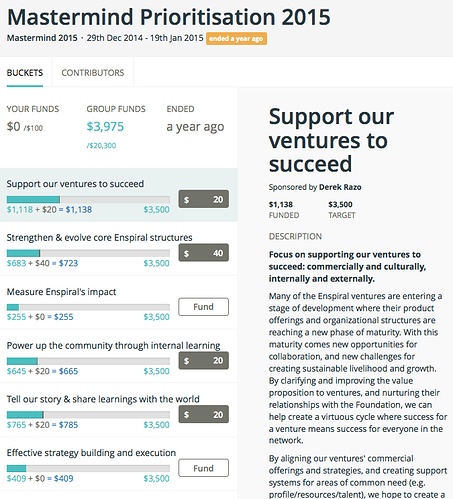After a great discussion with Simon Sarazin, a French activist very involved in the Commons and the governance of the Commons.
I wanted to share with you some inputs I got from the conversation, that could be useful for other partners:
###1- Form of incorporation
In France some non-profit organizations are starting to hack the “association” by-laws, say very few in them and say that the “quality of member”, “voting rules”, etc are described in the internal rule which is published on the decision space, Loomio. They say that the General Assembly is permanent and that any question can be raised by anyone and be decided upon following the rules describes in the internal rule. It’s in French, sorry, but maybe you can use some translating tool, so I share the Loomio page for inspiration: Charte de La Coroutine
For info in France, we are thinking about using an instance based Discourse for that. We want the users of the plateform to be also involved in the governance and decision making process regarding the commons they use. So we thought to have a governance section in our local Discourse and when a decision is needed, use Loomio for the formal decision making (to have a valid decision by law).
###2- About financing, and retribution of the contributors, again some interesting models
- Retributive budget: you give to the commons, and you decide if you want to be given something back or not, and how much, but it’s 100% transparent. Examples of Gratipay: https://lite6.framapad.org/p/gratipay or Gittip: Le modèle de l’entreprise ouverte – simons_fr or here is a little more handcraft version: Modèle Budget Rétributif - Google Sheets. As it’s 100% transparent, and the people allowed to take money are the contributors who are trusted by the community, the self regulation works very well. But it means accepting to loose some control

- Regular micro-donations, using Patreon (people give 1 or 2€ per month for example, but additioning everything that can make quite an ok sum!) POC21 Community | creating open source hardware for good | Patreon
- No commission, but a logic of very encouraged donation. HelloAsso, the crowdfunding platform for associations in France, has done an amazing design job, so the platform is zero commission, but ask for a tip for the association that takes care of the platform, and in average they receive a 5% commission! https://www.helloasso.com/don/associations/anis
“Your margin is my opportunity”, that works whatever the commission is, so even if we take a 2% commission on the sales made on OFN… should this be a compulsory price, or a tip we encourage people to give with their heart, with the consciousness of the utility of the work done by those who take care of the platform?
###3- About actors making money by using the commons
This is also something we thought should be positive, to have companies proposing farmers to set up their online shop for them using OFN, or building their marketing and commercial strategy using OFN. That’s just one example. What relationship do we maintain with those commercial actors making money by using OFN and the work done by the contributors?
Here is again a very interesting reflexion by Simon (in English that time!): EnCommuns.org with a nice propose: encourage the commercial actors who use the commons to contribute to it either in kind (giving time) or donation, and make it visible when they contribute. See also discussion here: Selling consultancy services to food entreprises to help them set up their hub - #2 by lin_d_hop
I hope those inputs will be of some use here ![]()
I make this post a wiki so that we can add more reflexions on those topics if needed

 I think it would be very consistent if the OFN could join the Alliance and adopting the
I think it would be very consistent if the OFN could join the Alliance and adopting the 

 )
)